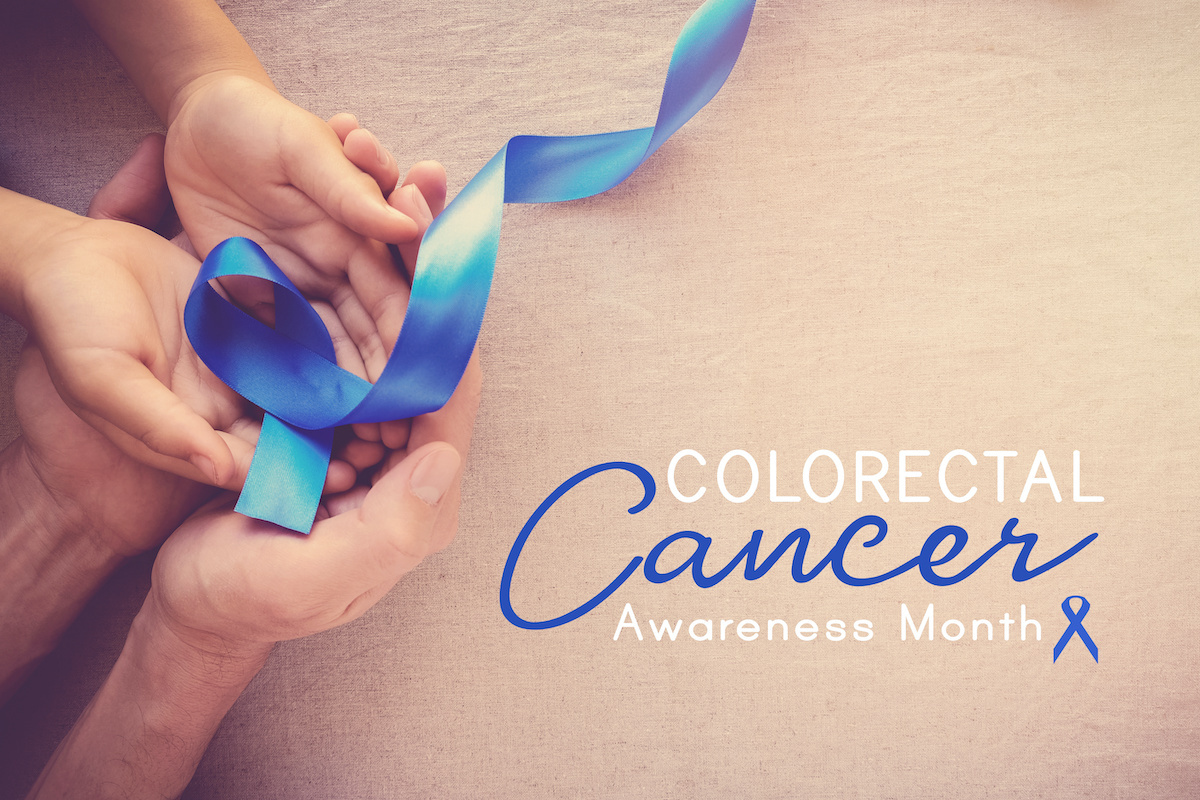December 7, 2020
5 Early Symptoms of Colon Cancer

Colon cancer is a serious condition, but it's much easier to treat when caught early. Like many other cancers, colon cancer doesn’t always cause noticeable symptoms in the beginning. This is why it’s so important to be aware of what signs to look for. While these symptoms could be related to issues that aren’t cancer, it’s best to schedule an appointment with your doctor if they don’t go away on their own in a few weeks so that your doctor can investigate the cause, which in many cases is not related to cancer.
Early symptoms of colorectal cancer to look out for include:
1. Changes in bowel habits
One of the first signs of colon cancer may be a persistent change in bowel habits, such as constipation, diarrhea, or narrow stools. All of these changes can be normal if they are temporary, but you should mention them to your doctor if they don't go away after a few days.
Keep in mind that some people have long-lasting changes in bowel habits because of other less serious conditions, such as irritable bowel syndrome. However, you should always see a doctor to rule out cancer when bowel habits change and don't go back to normal.
2. Blood in the stool is a symptom of colorectal cancer
One of the cardinal signs of colon cancer is blood in the stool. In some cases, this blood may be bright red and very noticeable, or it can appear in the stool itself, making it look black.
Blood can appear on its own, or you may notice it only with bowel movements.
While this is a sign of cancer, there are other reasons you could have blood in your stool, including hemorrhoids or other issues. However, any blood you notice on toilet paper or in your stool should always be reported to your doctor, especially if it happens more than once.
3. Anemia
Colon cancer can cause bleeding in the colon without you knowing it. This would typically be at the site of a polyp that has developed into cancer. When there is consistent blood loss, it could lead to anemia. Anemia is a condition where there aren't enough healthy red blood cells to carry oxygen to the organs in your body.
You may discover that you are anemic on a routine blood test, or you may suspect the condition when you notice the symptoms of anemia, such as extreme fatigue and weakness, shortness of breath, irregular heartbeat, cold hands and feet, and pale skin.
Anemia has many possible causes, including a simple lack of iron in your diet. However, because you could have internal bleeding and not realize it, the cause of anemia should always be investigated to rule out serious illnesses like colon cancer.
4. Abdominal pain
Some people with colon cancer may not have pain until the disease is in its later stages, depending on the location of the tumor and other factors. However, for others, abdominal pain can be an early sign of colon cancer. Like many of the other symptoms of colon cancer, abdominal pain can have a lot of other causes. If you are experiencing abdominal pain that isn't explained by some other condition, it is time to talk to your doctor.
5. Unexplained weight loss
Unexplained weight loss is another possible symptom of colon cancer. In fact, unexplained weight loss can be a symptom of several different types of cancer. If you lose more than ten pounds over a period of a few months without trying, it may be a sign of a problem.
Regular Screening Can Help Detect Colon Cancer
If you notice any of these changes or if you experience other signs of colon cancer, please make an appointment with your doctor as soon as possible. Depending on the situation, your doctor may recommend specific testing to rule out colon cancer.

While a colonoscopy is the most reliable screening test to detect colon cancer, there are other tests that might provide additional insight into your personal situation. These tests are considered non-invasive and convenient since samples are collected in the privacy of your own home and then sent to a lab. These tests can include:
Stool DNA Test: A test that checks for blood in the stool and genetic mutations.
Guaiac-based Fecal Occult Blood Test (gFBOT): An extra-sensitive test that uses a chemical to detect heme, a component of the blood protein hemoglobin, which often goes unseen with the naked eye.
Fecal immunochemical test (FIT): A test that uses antibodies to detect the human hemoglobin protein specifically.
Learn more regarding What You Need to Know About At-Home Colon Cancer Testing.
It is recommended that individuals considered at average risk begin colon cancer screening at age 45. However, if you are considered high-risk, your physician might recommend that you start getting screened earlier. It’s important to talk with your primary doctor about colon cancer screenings, making sure to address any risk factors that could increase your risk of developing the disease. The more your doctor knows, the easier it will be to determine the best time for you to start screening.

If Your Symptoms are Related to Colorectal Cancer…
If you receive a diagnosis of colorectal cancer, it’s likely you have a lot of questions. The colorectal cancer doctors at the Cancer Cancer Care Centers of Brevard have put together the answers to common questions patients have about a diagnosis and treatment.
We are here to help you navigate through this journey, which includes creating a customized colorectal cancer treatment plan that works for your needs based on the stage of your cancer. We are conveniently located in Palm Bay, Melbourne, Merritt Island, and Rockledge, FL.
Categories: Colorectal Cancer